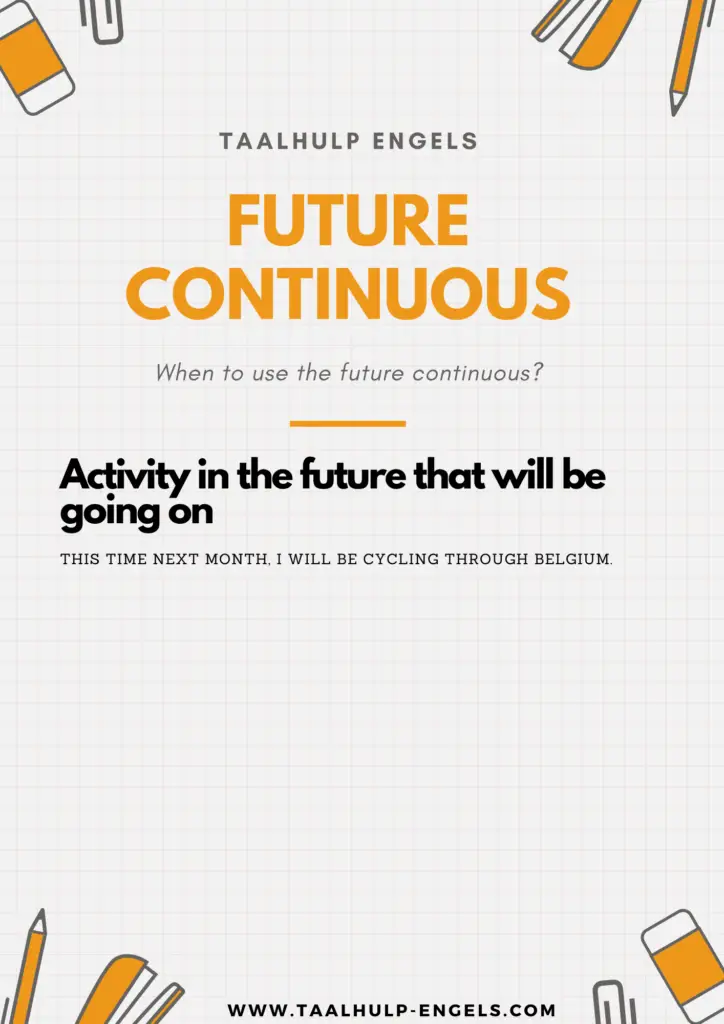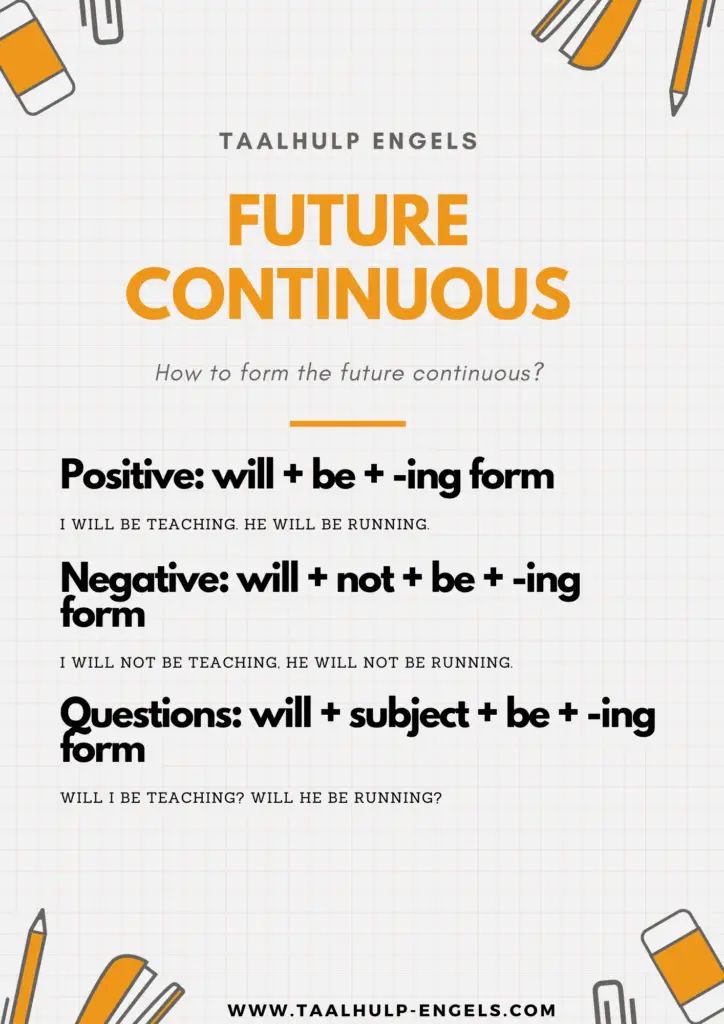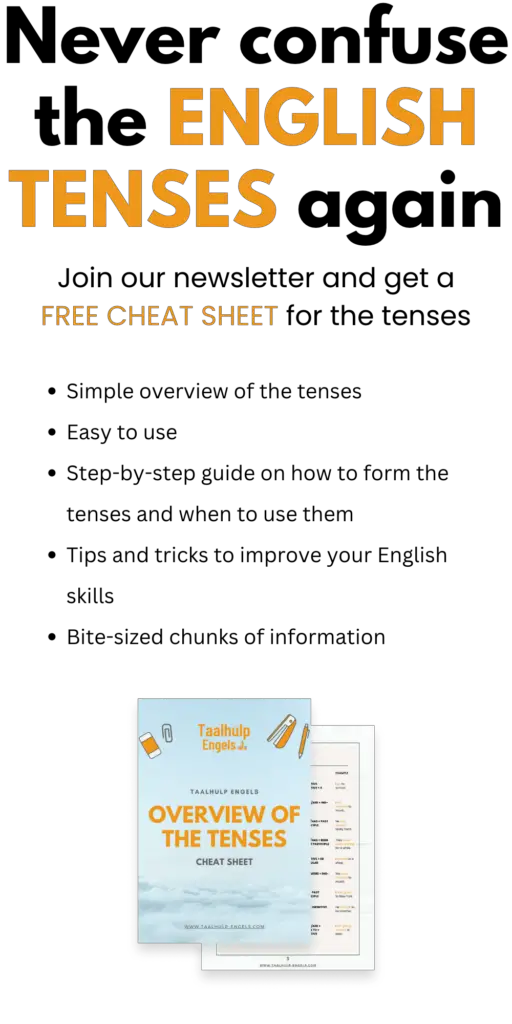There are multiple ways to talk about the future in English and using the future continuous is one way of doing that. In this article, you have a complete overview of when to use this tense, how to form it and you will also find some examples and exercises.
Future continuous tense
The future continuous is used to talk about an activity in the future that will be happening at the moment you are referring to. If you use this tense, you want to stress the fact that the action will be going on.
For example:
- This time next month, I will be cycling through Belgium.


How to form the future continuous
Future continuous positive
If you want to make positive statements using this tense, you need three elements:
will + be + -ing form of the main verb
| I will be teaching the same course next year. |
| Next week I will be cooking for my girlfriend. |
You can also use the short form for ‘will’, which is <ll>. This one is mostly used in spoken English, but can also be used in written communication.
For example:
- I‘ll be skiing

Future continuous negative
If you want to form negative sentences in the future continuous, you need to use ‘not’ and put it right after ‘will’. You always need four elements to make negative statements:
will + not + be + -ing form of the main verb
| I will not be teaching the same course next year. |
| Next week I will not be cooking for my girlfriend. |
You can also use the short form in negative sentences. ‘Will not’ becomes ‘won’t’.
For example: I won’t be teaching
Future continuous questions
If you want to form questions using the future continuous, you need to change the word order of the sentence. The correct order is:
will + subject+ be + -ing form of the main verb
| Will I be teaching the same course next year? |
| Will I be cooking for my girlfriend next week? |
Examples
| Positive | Negative | Questions |
|---|---|---|
| He will be playing They will be listening | He will not be playing They will not be listening | Will he be playing? Will they be listening? |




